Dissenting Supreme Court Justices Rip Policy That Lets More Visitors Into Nevada Casinos Than Into Churches
Posted on: July 26, 2020, 04:18h.
Last updated on: July 27, 2020, 01:58h.
The US Supreme Court recently upheld a Nevada policy that limits church crowds to 50 worshipers. That’s while casinos are typically allowed to operate at a much higher capacity of 50 percent, given the risk of transmission from the COVID-19 pandemic.

By a 5 to 4 vote, the justices said Friday the state policy does not violate the US Constitution, which protects the free exercise of religion. But attorneys for the Calvary Chapel Dayton Valley in Dayton, Nevada, said the policy treated attendance at churches different from state-imposed limitations on crowds in casinos, restaurants, or even gyms, CNN reported.
Controversial Deviation
“Treating churches and casinos under different rules during the COVID-19 pandemic is and will remain controversial,” Anthony Cabot, Distinguished Fellow of Gaming Law at UNLV’s Boyd School of Law, told Casino.org when asked about the Supreme Court’s action.
In this case, not only are the rules different — churches can have a maximum of 50 worshipers — but the system of enforcement is different,” Cabot explained.
“More specifically, the [Nevada] State Gaming Control Board has used a significant portion of its workforce to monitor compliance with social distancing and PPE [personal protective equipment]. It is two different approaches to addressing a single threat, but recognizing different enforcement capabilities.”
Attorneys representing the state of Nevada had argued before the Supreme Court that “temporarily narrowing restrictions on the size of mass gatherings, including for religious services, protects the health and well-being of Nevada citizens during a global pandemic.”
Associate Justices Samuel Alito, Clarence Thomas, Brett Kavanaugh, and Neil Gorsuch sided with the church in the case. Chief Justice John Roberts joined with the more progressive associate justices of the high court in voting for the state’s position.
Alito: No Freedom to Gamble
In his dissent, Justice Alito argued the “Constitution guarantees the free exercise of religion. “
It says nothing about the freedom to play craps or blackjack, to feed tokens into a slot machine, or to engage in any other game of chance,” Alito said.
“A public health emergency does not give Governors and other public officials carte blanche to disregard the Constitution for as long as the medical problem persists,” Alito said, also noting that Nevada Gov. Steve Sisolak (D), “apparently has different priorities.”
Gorsuch and Justice Brett Kavanaugh noted similar complaints, most similarly, that individuals tended to linger in casinos and other facilities as long as they would in a church.
Gorsuch further articulated that establishments like movie theaters could house large numbers of visitors.
“A casino, too, may cater to hundreds at once, with perhaps six people huddled at each craps table here and a similar number gathered around every roulette wheel there,” Gorsuch wrote. “But churches, synagogues, and mosques are banned from admitting more than 50 worshipers — no matter how large the building, how distant the individuals, how many wear face masks, no matter the precautions at all,” Gorsuch argued.
Justice Brett Kavanaugh further noted, “The risk of COVID-19 transmission is at least as high at restaurants, bars, casinos, and gyms as it is at religious services. Indeed, people congregating in restaurants, bars, casinos, and gyms often linger at least as long as they do at religious services.”
As of Friday, Nevada’s health districts and county officials said there have been 41,020 cases of coronavirus. The number of fatal cases in Nevada has reached 722, according to the Las Vegas Review-Journal.
In May, President Donald Trump requested individual governors reopen houses of worship for services. He warned he could “override” governors if they failed to reopen churches.
Related News Articles
Most Popular
Tropicana Las Vegas to be Imploded, Tentative Date Set
VEGAS MYTHS BUSTED: Golden Gate is the Oldest Casino in Vegas
DraftKings Leads Bank Sports Betting Survey, ESPN Bet Surprises
Most Commented
-
End of the Line for Las Vegas Monorail
— April 5, 2024 — 90 Comments -
Long Island Casino Opponents Love New York Licensing Delays
— March 27, 2024 — 5 Comments

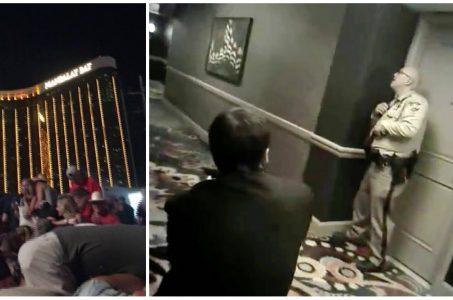
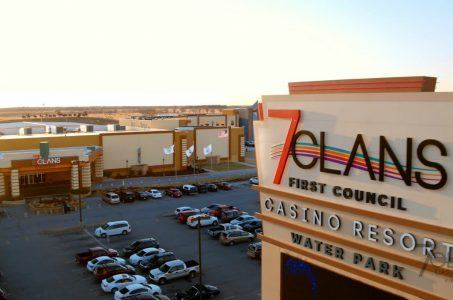
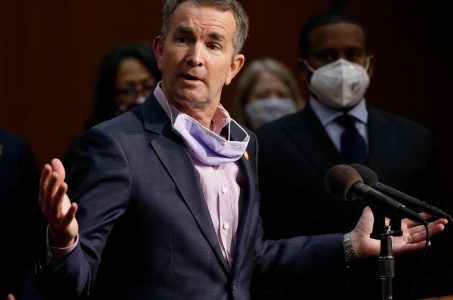










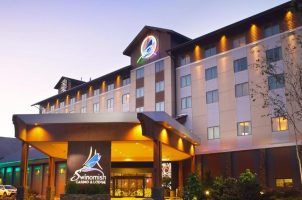
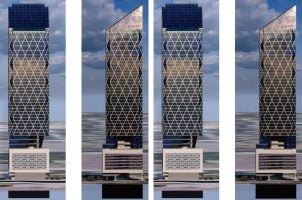
No comments yet